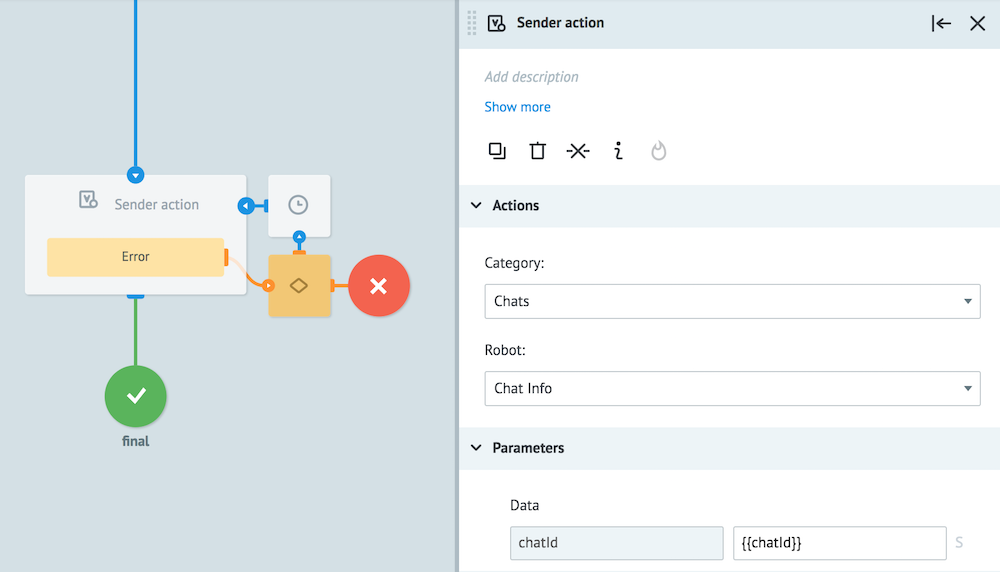
#IFRAME CHATID UPDATE#
You can use the Teams Toolkit extension for Microsoft Visual Studio Code to simplify the TeamsJS v.2.0 update process for an existing Teams app. Each namespace represents a separate capability. You can think of capabilities as logical groupings of APIs that provide similar functionality, such as authentication, dialog, chat, and calendar. Most functions with callback parameters in TeamsJS v.1.12 have been modernized to return a JavaScript Promise object for improved handling of asynchronous operations and code readability.ĪPIs are now organized into capabilities. There are two significant changes between TeamsJS 1.x.x versions and v.2.0.0 and later:Ĭallback functions now return Promise objects. For a summary of host support for Teams apps, see TeamsJS capability support across Microsoft 365. Currently, other Microsoft 365 application hosts (including Microsoft 365 app and Outlook) for Teams apps support a subset of the application types and capabilities you can build for the Teams platform. TeamsJS v.2.0 introduces the ability for certain types of Teams apps to run across the Microsoft 365 ecosystem.

Microsoft 365 support (running Teams apps in Microsoft 365 and Outlook) The remainder of this article will walk you through the structure and latest updates to the TeamsJS library. For more information, see TeamsJS library. The 1.12 and 1.13 schemas are otherwise the same. TeamsJS v.1.12 continue to be supported, however, no new features or improvements will be added. * Use the latest TeamsJS (v.2.0 or later) whenever possible, in order to leverage from the latest improvements and new feature support including Teams-only apps. Understand TeamsJS backwards compatibility and Update to TeamsJS v.2.0Ĭreate a new Teams app using Teams Toolkit Update to TeamsJS v.2.0 when possible (v.1.12 is still supported*) Teams apps extended to Microsoft 365 / OutlookĮxtend a Teams app to run across Microsoft 365 or Create a new Microsoft 365 app Here's the current versioning guidance for various app scenarios: From a functional perspective, the latest version of TeamsJS supports all existing (v.1.x.x) Teams app functionality while adding the optional ability to host Teams apps in Outlook and Microsoft 365 app. Starting with version 2.0.0, the existing TeamsJS library ( or simply TeamsJS) has been refactored to enable Teams apps to run in Outlook and Microsoft 365 app, in addition to Microsoft Teams. The library is helpful for developing apps with the following Teams capabilities: $tzone = Get-TimeZone # conversion from GMT to local time.The Microsoft Teams JavaScript client library (TeamsJS) can help you create hosted experiences in Teams, Microsoft 365 app, and Outlook, where your app content is hosted in an iFrame. But in my case it grabbed all 2000 chats. all and -pagesize 50 is required for the module to paginate the request and get you everything. #By default you can get all your chats by running get-mgchat. And shows more than one line per message, even when I try now to. Get-mgchat -ChatId -ChatId nests and walks through properly, strips HTML, but lord this will be slow.
#IFRAME CHATID HOW TO#
#unsure how to get it otherwise - but you don't need it with get-mgchat #I had to find my user id in graph explorer UI by running GET V1.0 #at this point a browser window should appear - allow it. Stripping out HTML works but is not great. Piping to OGV gives you all lines, when I really only want the first.įortunately, format-table DOES limit to one line per message Time zones seem wonky, specifically people in other time zones. The below code will grab all of your chats, then grab the most recent 200 messages, filtered for the past day, and then will return the pertinent info.

And there's a good amount of playing you can do with the Graph Explorer. Note that you DO have a certain amount of access to your own stuff without needing an admins help, but you will have to explicitly grant it to each "application" that will connect to it. turns out the answer is, as and mentioned, is the Graph API - which has a module. You could probably do something to chnage the name of recent chats, but I haven't looked at that yet.

So: filter down the meetings to those with changes in the past couple of weeks, grab all other chats, then run each of them using a filter on get-mgchatmessage to only get recent messages. This isn't the case on oneonone and groups, alas.

Meetings, at least mine, have frequent changes - new people, people removed, name changes, etc. Given that I have over 1500 total chats at this point, filtering the chats is a necessity. There are two possible filters, one to filter the chats retrieved, and one to filter messages in the chats (finally found a way to do it).


 0 kommentar(er)
0 kommentar(er)
